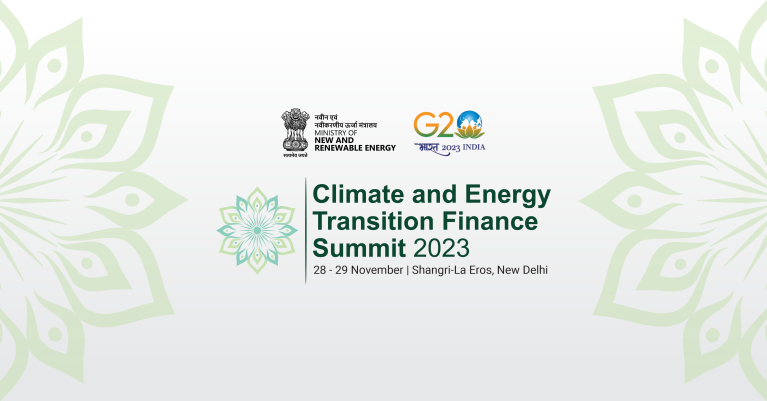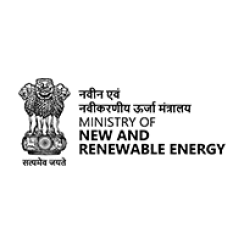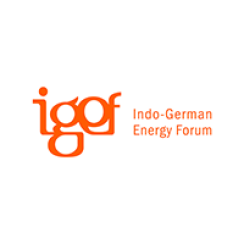"[...] The developing world will need $5.9 trillion till 2030 for its Nationally Determined Contributions, and an additional $4 trillion each year for clean energy technologies to meet zero emission goals."
Amitabh Kant, G20 Sherpa, Government of India
Empowering Global South: The Revolution of Climate Finance and Energy Transition
Championing Ambitious Climate Finance Paradigms
The Climate and Energy Transition Finance Summit serves as a global platform for ground-breaking financing paradigms, enabling nations in the global south to fulfil their Nationally Determined Contributions (NDCs) in their journey towards a net-zero future. Recognizing the need for unprecedented funding, this summit redefines the financing landscape. Despite developed countries nearing their commitment of providing $100 billion annually to developing nations, the G20 Delhi Declaration calls for a paradigm shift. It proposes establishing a New Collective Quantified Goal (NCQG) beyond 2024, emphasizing that $100 billion is merely the starting point, not the limit.
Four Pillars of Transformative Financing
This summit introduces innovative approaches to climate finance, underpinned by four core principles:
Constructing the new Investment Paradigm: A new financing framework is required that underpins the NCQG, ensuring the delivery of the capital needs of the global south. Unlocking Institutional Finance: The deepest capital pool in the world must play a crucial and responsible role in energy transition and delivering finance for both mitigation and adaptation measures.
Blended Finance to the Fore: Rather than the exception, blended finance must become the norm to reduce the financing risks and corral private capital to accelerate decarbonisation.
Redefining Carbon Markets: The carbon credit, potentially the main instrument in the mitigation of emissions needs complete redesign perhaps with the introduction of green credits.
Powering the Future with Ideas and Initiatives
Leading into COP-28, the Summit is set to release a series of papers, including the "Library of Financial Structures and Instruments," "Blended Finance Approaches for the Global South," and drafts on "Unlocking Institutional Capital" and "Carbon Financing and Green Credits for the Global South." These innovative bodies of work shall collectively support global climate and energy transition financing efforts.
A Collaborative Multistakeholder Initiative
This summit is a gathering of influential global financiers, policymakers, industry leaders, and think-tanks. Together, they will deliberate on and initiate groundbreaking ideas in climate finance, working towards a future powered by innovative financial solutions.
Key Outputs:
- Reports
- Library of Instruments
- Blended Finance Approaches
- Working Papers
- Institutional Finance
- Carbon Finance
- G20 Climate Finance and Energy Transition Impact Projects Group / Task Force
Day 1: Plenary Sessions
| Time |
Activity |
| 09:30–09:35 |
Welcome Remarks
Sanmit Ahuja, Sr. Adviser – Finance, GH2 |
| 09:35–11:00 |
Session 1: Paradigm Shifts in Climate Finance
Format: Plenary Speech
As there is a growing recognition that the quantum of capital required for the global south’s energy transition is significantly higher than previously estimated, the need to look at financing through a different prism has never been greater before. This session will put forth the following macro-arguments that will set the stage for the Summit:
Institutional Capital De-Risking: Institutional capital is poised to provide the necessary financing, but it requires de-risking.
Blended Finance for Emerging Economies: The global south requires blended finance and a range of financial instruments as primary form of financing with a range of guarantee instruments and concessionary debt.
Establishing Carbon Pricing: Establishing and enabling the price of carbon is imperative for driving climate finance.
Shri Amitabh Kant G20 Sherpa
Dr. Ajay Mathur Director General, International Solar Alliance
HE Philip Green OAM High Commissioner, Government of Australia
HE May-Elin Stener Ambassodor to India, Kingdom of Norway
Mr. Vineet Mittal Chairman, Avaada
|
| 11:00–11:30 |
Break
|
| 11:30–12:45 |
Session 2: Role of Institutional capital in Energy Transition
Format: Panel Discussion
Moderator: Mr. Sanmit Ahuja Senior Advisor Finance, The Green Hydrogen Organisation
In the pursuit of accelerating global energy transition, this panel discussion will shed light on the crucial
role institutional capital plays and explore avenues to enhance its flow into the global south. The session
will dissect key barriers and propose solutions to invigorate institutional funding.
Impact of Interest Rates and Inflation: Analysing the consequences of the rise in global interest rates
and a high inflationary environment:
- How do fluctuations in global interest rates and inflation affect the willingness of institutional investors
to support impactful climate and energy transition projects in India and other emerging economies?
- What strategies can be employed to navigate challenges posed by changing interest rates and inflation,
ensuring a sustained flow of institutional funds?
Scaling Institutional Capital: Recognising the imperative for scale in mobilising institutional capital:
- Does the need for scale in institutional capital call for the establishment of large aggregation platforms
to efficiently channel funds into developing markets?
- What models or platforms can effectively address the scalability challenge and attract substantial
institutional investment in the energy transition sector?
Collaborative Roles: Exploring the potential for collaborative engagements between governments and
institutional investors.
- Beyond transactional interactions, how can governments and institutional investors forge collaborative
roles to foster sustainable and impactful projects?
- What frameworks or partnerships can be established to facilitate a more synergistic relationship
between governments and institutional investors, ensuring mutual benefits in the energy transition
landscape?
- This session aims to unravel the complexities surrounding institutional capital, offering insights and
actionable strategies to propel the global south towards a sustainable and resilient energy future.
Mr. Dhruba Purkayastha Director, Climate Policy Initiative
Mr. Rengaraj Sadagopalarajan CEO, Auden Energy Services
Mr. PK Sinha Executive Director, Power Finance Corporation
Mr. Rolf Behrndt Senior Advisor, GIZ
Mr. Rey Guarin Climate Change Investment Advisor, ProClime (Virtual)
|
| 12:45–13:15 |
Session 3: Introduction to the Climate and Energy Transition Finance
Programme
Special Address: HE Malcolm Turnbull Chairman, The Green Hydrogen Organisation (Virtual)
In this session, led by Programme Director Mr. Sanmit Ahuja, participants will gain a comprehensive
understandingof the Climate and Energy Transition Finance Programme. A detailed overview,
highlighting the program's key objectives and anticipated outcomes will be provided. The session will
offer a platform for attendees to engage in a dynamic question-and-answer session, encouraging an
interactive dialogue on the critical aspects of the program. This session serves as a foundational step
in acquainting participants with the program's structure, setting the stage for deeper insights and
discussions throughout the summit.
Mr. Sanmit Ahuja Senior Advisor Finance, The Green Hydrogen Organisation
Ms. Inês Schjølberg Marques Director, GHDP, The Green Hydrogen Organisation
Mr. Jonas Moberg CEO, The Green Hydrogen Organisation
Mr. Nishaanth Balashanmugam Country Manager, The Green Hydrogen Organisation
|
| 13:15–14:15 |
Lunch |
| 14:15–15:15 |
Session 4: Blended Finance will be the New Norm
Format: Panel Discussion
Moderator: Mr. Sanmit Ahuja Senior Advisor Finance, The Green Hydrogen Organisation
Nearly two-thirds of the global emissions are generated in emerging markets. However nations in the
global south do not generate enough capital surpluses to finance their energy transition. Therefore
mobilising private capital will not only be essential, but mission-critical to the success of global energy
transition agenda. This session will cover:
Attracting Private Capital: Private capital requires returns commensurate with the risk it is taking.
How can global development finance institutions develop standard products that can make it attractive
for a much larger pool of investors to participate in the climate transition projects?
Policy Impediments: There are policy impediments in rolling out blended finance structures and
instruments. Central Banks, banking and insurance regulators will need to work together with development
finance institutions to facilitate ready availability of blended-finance.
New Climate Finance Architecture: Is there a need for a new climate finance architecture, where blended
finance becomes the norm?
Mr. Dhruba Purkayastha Director, Climate Policy Initiative
Ms. Nina Fenton Head of Regional Representation, South Asia, European Investment Bank
Ms. Surbhi Goyal Senior Energy Specialist at World Bank, World Bank Group
Mr. Tarun Shankar Senior Investment Professional, IFC, World Bank Group
Mr. Sanjeev Kaushik Principal Finance Specialist, Asian Development Bank (Virtual)
Ms. Katherine Stodulka Director, Blended Finance Taskforce, Systemiq, UK (Virtual)
|
| 15:15–15:45 |
Coffee Break |
| 15:45–16:45 |
Session 5: Financing Carbon and Green Credits - Accelerating the
Green Transition
Format: Panel Discussion
Moderator: Mr. Kavin Kumar Kandaswamy CEO, Proclime
In the journey towards a sustainable future, carbon markets and green credits emerge as transformative
tools, redefining the landscape of climate finance. This session delves into the intricate web of financing
mechanisms associated with carbon markets and green credits, unraveling their pivotal role in
accelerating the global green transition.
Mr. Jay Cheema Energy and Climate Change Lawyer
Mr. Vivek Sharma Head - Energy Strategy Group, Adani
Mr. Hirander Misra Chairman, GMEX Group & ZERO13, UK
Mr. Adrian Rimmer Director, Sustainable Finance, Capital Markets, LSEG (Virtual)
|
| 16:45–17:45 |
Session 6: Blended Finance will be the New Norm
Format: Panel Discussion
Moderator: Mr. Sanmit Ahuja Senior Advisor Finance, The Green Hydrogen Organisation
Addressing risks through innovative financial structures and instruments is crucial for developing a
shelf of bankable projects. The session explores model constructs for green hydrogen and energy
transition projects, emphasizing India's potential as a hub for decarbonization lighthouse projects.
It also considers how India can showcase the pathway to decarbonization for the global south and
explores global collaboration models to accelerate project development cycles.
Shri KR. Jyothilal IAS, Additional Chief Secretary, Dept. of Energy, Govt. of Kerala
Shri Anil Dhaka IAS, Managing Director, RRECL
Mr. Sujit Jena Office of the G20 Sherpa, G20 Secretariat
Mr. Wale Shonibare Director - Energy Financial Solutions at African Development Bank (Virtual)
Mr. Dolf Jean Gielen Senior Economist, World Bank Group (Virtual)
Ms. Nashid Chowdhry Trade Commissioner, Western Australia (Virtual)
Ms. Rimali Batra Associate Partner, DSK Legal
|
Day 2: Leaders' Dialogue, Townhall and Workshops
| Time |
Activity |
| 09:35–10:50 |
Workshop 1 : Market Making for Green Hydrogen and Structures to
enable institutional capital
Format: Workshop
Moderator: Mr. Sanmit Ahuja Senior Advisor Finance, The Green Hydrogen Organisation
Taking cues from the first session of the Summit, this workshop will delve deeper into market-making
mechanisms and unlock institutional capital.
For the Green Hydrogen sector, the role of a “market-maker” has been identified as the most critical
intervention that Governments can make. This will jumpstart the market but requires careful structuring
and will put forth the framework for establishing such a platform.
For the wider energy transition sector, unlocking institutional capital is critical to attract financing
for decarbonisation of industries. What are the essential steps emerging market nations need to
take to become highly attractive to institutional investors?
Mr. Gagan Siddhu Director, CEEW-CEF
Mr. Prasad Chaphekar Deputy Secretary, Ministry of New and Renewable Energy
Mr. Subhash Kumar Director, ACME
Mr. Anirban Kundu Co Director, IGEF
Mr. Amit Kumar Senior Investment Operations Specialist, AIIB
Mr. Chandra Chincholkar Director - Corporate Advisory, CES / IESA
Mr. Amit Sengupta Corporate Finance, Avaada
Mr. Mohan Bhuyan Head of India & South Asia - Primary Markets, London Stock Exchange
|
| 10:50-11:15 |
Break
|
| 11:15-12:00 |
Workshop 2: Financing Technology Acceleration
Format: Workshop
Moderator: Mr. Sanmit Ahuja Senior Advisor Finance, The Green Hydrogen Organisation
The global community cannot solely rely on just paying carbon taxes in any form to mitigate greenhouse
gas emissions as it endeavours to decarbonize industries. Placing emissions reduction at the forefront
is essential, and the sole means to expedite the commercialization of climate technologies.
However, This session will cover:
- What are the impediments technology innovators face when commercialising their solutions?
Bringing technologies to market require a new investment asset-class as in “infrastructure venture
investor”.
- What are the contours of this investment strategy?
Mr. Guneet Banga Executive Director, Caravel Group
Mr. Rolf Behrndt Senior Advisor, GIZ
Ms. Vibhuti Garg Director, South Asia at IEEFA
Ms. Olivia Oo Head of APAC, Partnerships, Breakthrough Energy
Ms. Inês Schjølberg Marques Director, GHDP, The Green Hydrogen Organisation
|
| 12:00-13:30 |
Session 7: Leaders’ Dialogue and Townhall
Format: Townhall
This session with a high level panel will offer deep insights into the current thinking of the
decarbonisation strategy of policy makers, industry and investors
- Is India on target to achieve its 2030 renewable energy and green hydrogen goals?
- What are the major risks, both macro and micro that may hinder India’s ambitions to decarbonise?
- How can Government, industry and investor community collaborate to ensure that the decarbonisation
targets are met and impediments removed?
Shri Tarun Kapoor Advisor to the Prime Minister’s Office, Government of India
Mr. Sumant Sinha Founder and Chairman, ReNew
Mr. Vineet Mittal Chairman, Avaada
Mr. Rajat Seksaria CEO, Green Hydrogen and Derivatives Adani
Dr. PKC Bose Co-Founder, ENREGO Energy, GmbH i.G
Shri Arun Mahesh Babu IAS, managing Director, GPCL
Mr. Pradeep Tharakan Director, Energy Transition, Asian Development Bank
Mr. Jonas Moberg CEO, The Green Hydrogen Organisation
|
| 13:30 |
Lunch & Close of Summit
|




















